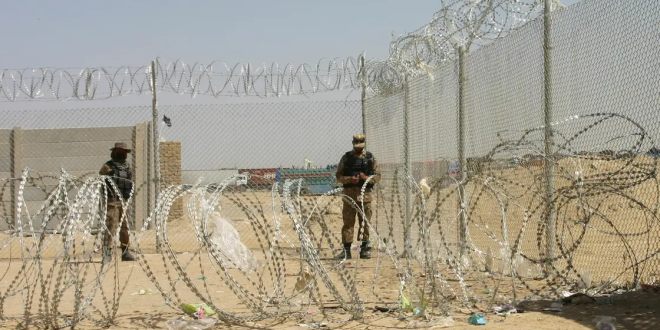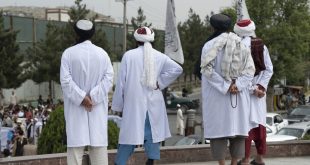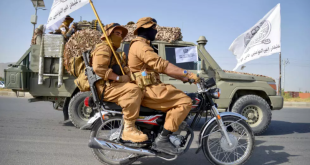AT News
KABUL: The Tehrik-e-Taliban-Pakistan (TTP) remains undeterred amidst Pakistan’s ongoing counterterrorism endeavors. Despite recent military operations, the TTP has managed to rebuild and strengthen its ranks, capitalizing on Pakistan’s political instability and economic woes.
During the Eid holidays, Pakistani security forces conducted raids on two militant hideouts near the Afghanistan border, resulting in the death of six militants. The military statement highlighted the operation’s success in capturing weapons and ammunition, with clearance operations ongoing in the area. Although the specific identities and affiliations of the deceased militants were not disclosed, it is widely known that factions of Tehreek-e-Taliban Pakistan (Pakistani Taliban) are involved.
The TTP, although a distinct group, maintains an alliance with other regional militant groups in the region. Taliban’s takeover in Afghanistan has also helped the Pakistani Taliban, leading to an escalation of attacks on police and military personnel in recent months.
Additionally, the presence of ISIS in the region adds complexity to the security landscape. Security forces eliminated an ISIS commander, Shafi Ullah, in a targeted operation in the Bajur district earlier in the week, along with two other militants.
Despite Pakistan’s military conducting significant operations in the tribal belt along the Afghanistan border, historically serving as a sanctuary for local and foreign militants, the region continues to witness sporadic attacks. The TTP has taken advantage of Pakistan’s political deadlock and precarious financial situation, announcing the formation of new administrative units in Punjab and Balochistan, adding to its existing network of twelve units.
Pakistan’s comprehensive strategy, adopted after the National Security Committee meeting in April, focuses on intelligence-based operations, law enforcement agency prosecutions, reviving the National Counter-Terrorism Authority, and disrupting financial support to the TTP. Engaging with local communities and providing economic opportunities are also emphasized to counter the growing support for the TTP in Khyber Pakhtunkhwa (KPK), its traditional stronghold. Furthermore, Pakistan has engaged in talks with the Taliban regime in Kabul, urging them to relocate TTP fighters away from the Afghanistan-Pakistan border.
While Pakistan has achieved some successes, such as the elimination of TTP commanders Abdul Jabar Shah and Sarbakuf Mohmand, the TTP remains undeterred and continues to pose a persistent threat to the state. The rival Islamic State branch in Afghanistan has sought to exploit the TTP’s vulnerability, attracting some fighters to its ranks. The TTP’s resilience underscores the challenges faced by Pakistan’s multidimensional counterterrorism efforts in curbing its influence and activities.Top of Form
 Afghanistan Times
Afghanistan Times




